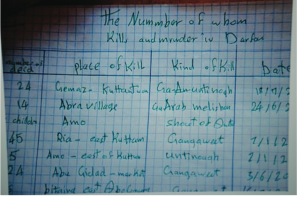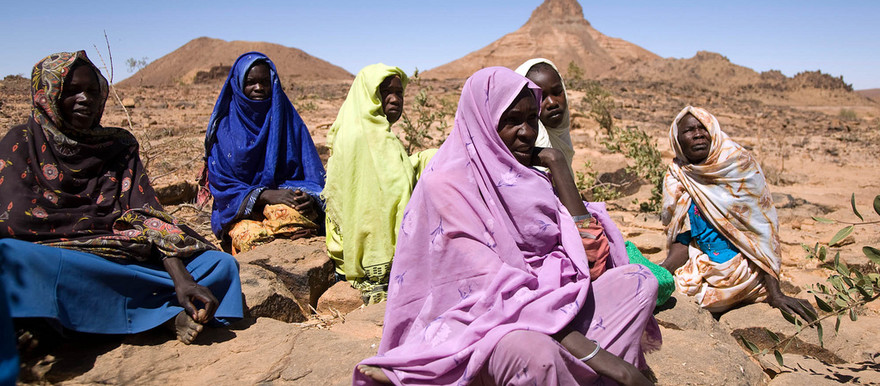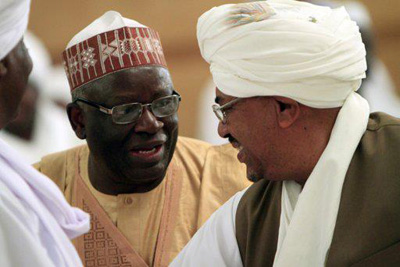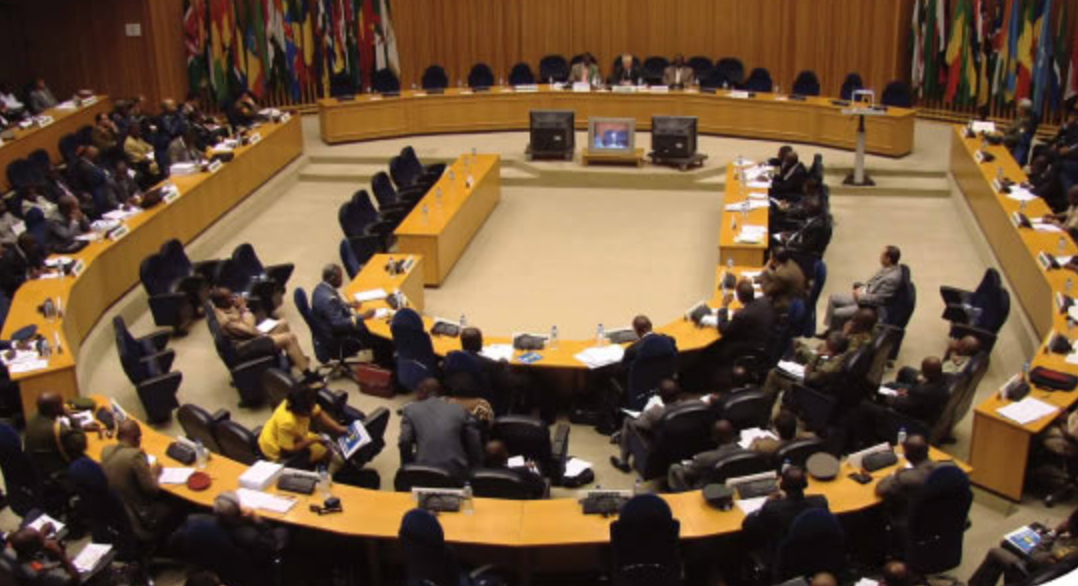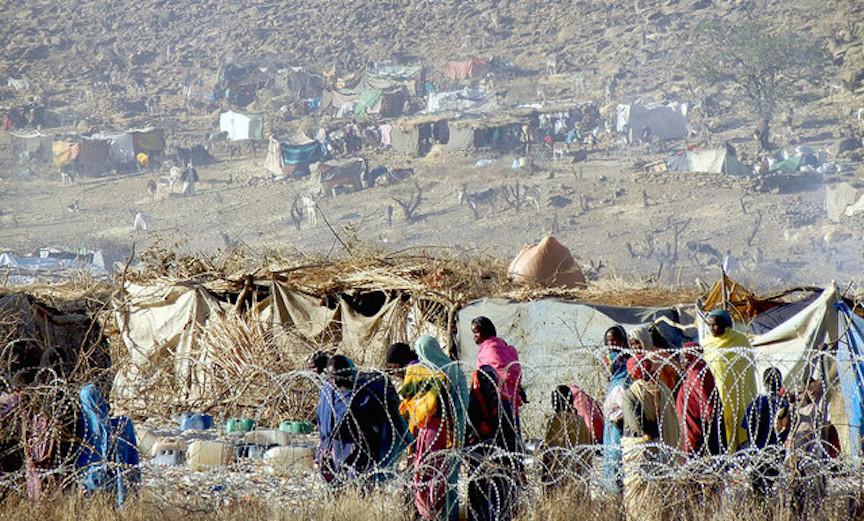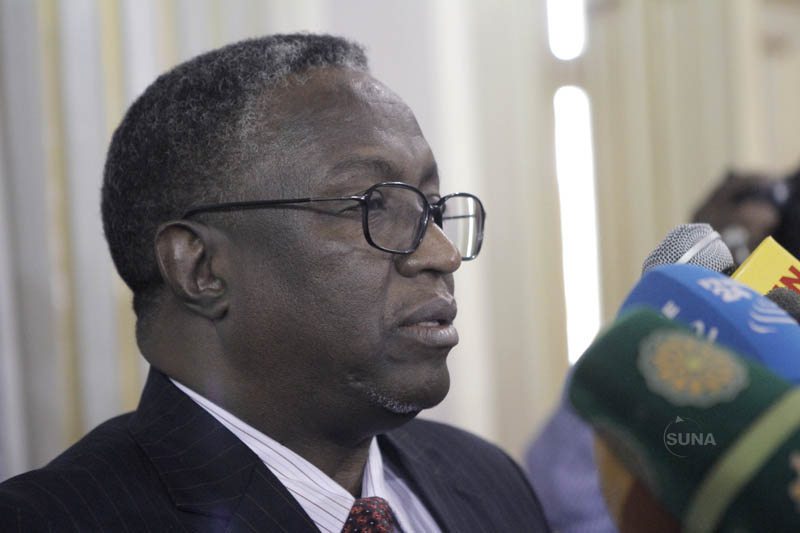UN Security Council to Slash UNAMID
Khartoum applauds UN move; Darfuri displaced call it a “major disappointment and flagrant mistake”; Human Rights Watch declares that deep cuts are “misguided” and based on a “false narrative.”
Eric Reeves | June 18, 2017 | http://wp.me/p45rOG-24j
The UN Security Council is poised to slash the presence of UNAMID in Darfur in enormously consequential ways—targeting for reduction police personnel, military personnel, and logistical/administrative personnel. The effect of this action will be to put millions of Darfuris at greater risk, both from intensifying insecurity and the inevitable reductions in humanitarian access, much of which is made possible only by virtue of UNAMID escort.
Three million Darfuris remain displaced from their homes and unable to return: 2.7 million Internally Displaced Persons and 300,000 Darfuri refugees in eastern Chad, living in miserable conditions but too fearful to return to Darfur. One might think that the deaths of more than half a million people—either directly or indirectly from Khartoum-orchestrated and countenanced violence—might give the UN Security Council pause—but that is not the case. Indeed, the UN’s Office for the Coordination of Humanitarian Affairs has not published any mortality data or promulgated a single mortality estimate since April 2008, when OCHA head estimated that 300,000 people had died from the effects of violence.
In more than nine years the UN has said nothing about deaths that are the consequence of genocidal violence.
For years non-Arab/African Darfuris attempted to track violent mortality inflicted upon them by the Khartoum regime and its militia proxies; the world was not interested
That violence continues and is reported on a daily basis by Radio Dabanga. Aggregations of incidents, attacks, and security deterioration as reported by Radio Dabanga reveal that far from gradually coming to an end, violence that began to surge in 2012 has remained at intolerably high levels:
“Changing the Demography”: Violent Expropriation and Destruction of Farmlands in Darfur, November 2014 – November 2015″ | December 1, 2015 | http://wp.me/p45rOG-1P4
Continuing Mass Rape of Girls in Darfur: The most heinous crime generates no international outrage | January 2016 | http://wp.me/p45rOG-1QG
[Arabic translation of this report | http://wp.me/p45rOG-1Rr ]
Many tens of thousands of girls and young women have been raped, often gang-raped in the most brutal fashion, by Khartoum’s militia forces and its regular troops; sexual violence has been a primary weapon of war from the beginning of the Darfur genocide
UNAMID was always a catastrophically misconceived “hybrid” operation shared between the UN and the African, and was in no way comparable to the peacekeeping mission authorized by the Security Council in August 2006 (Resolution 1706). Instead of the robust peacekeeping mission authorized under Chapter 7 of the UN Charter, the Chinese-proposed July 2007 UN Security Council authorization of UNAMID was the end result of countless disabling compromises with Khartoum and the disastrous hubris of the African Union, which not only declared falsely its ability and capacity to carry out such a mission but would at various junctures declare that violence in Darfur had essentially come to an end—the “false narrative” that Human Rights Watch refers to in the Radio Dabanga dispatch below.
UNAMID chief Ibrahim Gambari chatting it up with Génocidaire-in-Chief Omar al-Bashir’s, president of the Khartoum regime and sought for genocide and massive crimes against humanity by the International Criminal Court; this “sociability” was in violation of UN stipulations about contact with those indicted by the ICC. The incident was a deep revelation of not only the character of UNAMID leadership, but of the willingness of the African Union Peace and Security Council to allow UNAMID to fail, despite the immense consequences of this failure for the future of peacekeeping in Africa.
The African Union Peace and Security Council has declared that UNAMID is “worthy of emulation” in future peacekeeping operations in Africa; it is difficult to imagine a more cynical, or dangerous, assessment
UNAMID’s failure has been overwhelming, and yet it remains the only civilian protection force in Darfur; and we may be all too sure it will not be replaced or supplemented once reduced (44 percent of the military personnel are targeted for withdrawal; 33 percent of the police forces, crucial to any form of security in the IDP camps; and many UNAMID posts away from the major cities in Darfur will simply disappear). To the extent it has provided some protection—for civilians and humanitarians—the UN Security Council has said it no longer cares about this provision of protection. This is the same attitude that led to the misbegotten force created by UN Security Council Resolution 1769.
It is impossible to estimate the staggering number of people who will suffer, die, and be endangered by the decision to gut UNAMID
The original failures of August 2006, and the subsequent authorization of the compromised force known as UNAMID in July 2007, are now compounded by international expediency, callousness, and indifference to the suffering of millions of people.
CONTINUING GENOCIDE
Human Rights Watch has reported a speech by Vice-President of this regime, Hassabo Mohammed Abdel Rahman, addressed to troops about to begin assaults on civilian in the area known as East Jebel Marra; it is recalled by a defector from the paramilitary “Border Guards”:
Ahmed, a 35-year-old officer in the Border Guards, spent two weeks at a military base in Guba in December 2014 before being sent to fight rebels around Fanga. Two senior RSF officials, the commanding officer, Alnour Guba, and Col. Badre ab-Creash were present on the Guba base.
Ahmed said that a few days prior to leaving for East Jebel Marra, Sudanese Vice President Hassabo Mohammed Abdel Rahman directly addressed several hundred army and RSF soldiers:
“Hassabo told us to clear the area east of Jebel Marra. To kill any male. He said we want to clear the area of insects… He said East Jebel Marra is the kingdom of the rebels. We don’t want anyone there to be alive.”
(Human Rights Watch, “Men With No Mercy’: Rapid Support Forces Attacks against Civilians in Darfur, Sudan” | September 9, 2015)
****************************************************
“Reduction of UNAMID troops flagrant mistake”: Darfur displaced
June 18, 2017 | DARFUR
Members of the Darfur Displaced and Refugees Association have described the planned downsizing of the UN-AU Mission in Darfur (UNAMID) as “a major disappointment and a flagrant mistake.”
“A reduction of the number of UNAMID peacekeepers will make the Darfuris more vulnerable to abuses of all kinds by the paramilitary Rapid Support Forces and other militias operating in the region,” Hussein Abusharati, Spokesman for the Darfur Displaced and Refugees Association told Radio Dabanga.
“The current situation requires the joint UN-AU forces to strengthen their force in order to protect the people, rather than a withdrawal or reduction of the troops,” he said.
“The last couple of years, the attacks, killings, rapes, theft, and kidnapping have increased again. There is ample evidence for this. Even UNAMID peacekeepers themselves as well as aid workers have been targeted.” He cited the recent incidents in Ein Siro, Sortony, Mukjar, and Nierteti.
Exit
The Sudanese government began calling for UNAMID to leave the country in December 2014, after Radio Dabanga exposed an alleged mass rape by army troops in Tabit in North Darfur in late October that year. Six months later, the AU Peace and Security Council stated that it was satisfied with the developments concerning the mission’s exit, though it stressed the “critical importance” of a continued UUNAMID presence for peace and stability in war-torn Darfur.
The AU and the UN are now proposing 44 percent and 30 percent reductions in their troop and police presence in Darfur as a step towards an eventual exit.
“The reconfiguration of UNAMID is an important milestone towards the completion of its mandate,” said Assistant Secretary-General for Peacekeeping Operations El Ghassim Wane on Wednesday as he updated the 15-nation Security Council on the recommended changes to the peacekeeping mission.
He stated that the level of armed hostilities remained significantly lower than in previous years, noting that a successful military campaign by Khartoum has reduced the rebellion to a small presence in Jebel Marra.
On Friday, the Sudanese government welcomed the Security Council’s plan to downsize UNAMID, saying the move underscores the stability in Darfur.
“False narrative”
In a statement on Wednesday, Human Rights Watch (HRW) said that the Security Council should leave flexibility for UNAMID to respond to evolving threats, and strengthen the mission’s human rights monitoring and reporting capacities,”
“The planned cuts reflect a false narrative about Darfur’s war ending,” said Daniel Bekele, senior director for Africa advocacy at HRW. “There is no reason to believe that government attacks on civilians and other abuses have ended since the same security forces remain in place; they have never been prosecuted for their crimes and can’t be relied on to protect civilians.”
Two of the three main rebel movements reacted to the UN reduction plans as well. The Justice and Equality Movement and the Sudan Liberation Movement led by Minni Minawi said in a letter to the Security Council that “UNAMID is considered the conclusive guarantee for the protection of civilians in Darfur, particularly that the government of Sudan renews its attacks in the region.
“Despite confirmations that there was a decline in the direct military confrontations in Darfur, this does not mean the conflict has ended or that the conflict would not escalate again. This is evident in the clashes which took place in May in North and East Darfur,” they noted.
In late May and early June, Sudanese forces attacked, robbed and torched villages in North and East Darfur, after clashes with rebel fighters. Thousands of villagers were reportedly displaced.
UNAMID’s report for the first quarter of 2017 found an increase in human rights violations and abuses compared with the same period in 2016, and confirmed that Sudanese government restrictions seriously hamper the peacekeepers from protecting civilians.
